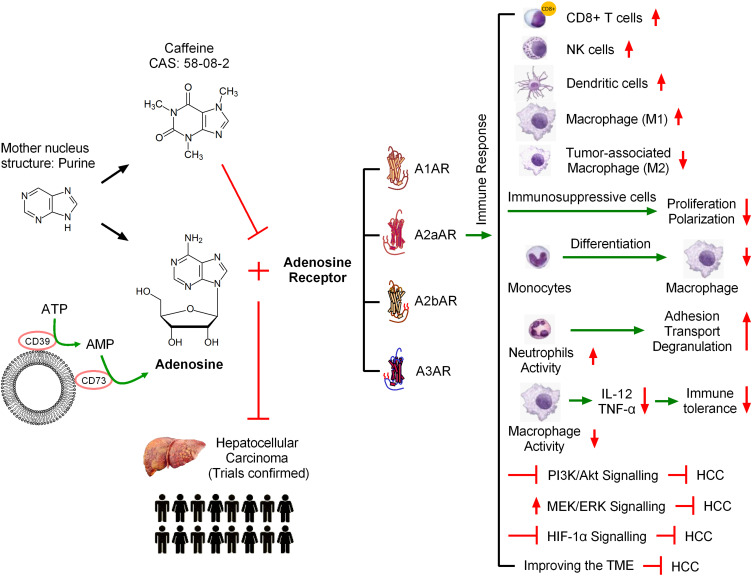Figure 1.
Caffeine protects the liver by inhibiting the binding of adenosine and adenosine receptor (ARs). In inflammatory and damaged tissues such as during cancer, extracellular adenosine concentrations can increase and accumulate to induce immune responses and promote tumor progression. Inhibiting adenosine and AR binding in inflammatory or cancer tissues increases the levels of various immune cells. However, inhibition of adenosine increases the activity of neutrophils, thereby increasing the adhesion, transport, and degranulation of neutrophils. Caffeine inhibits the growth of tumor cells by regulating the immune microenvironment.

